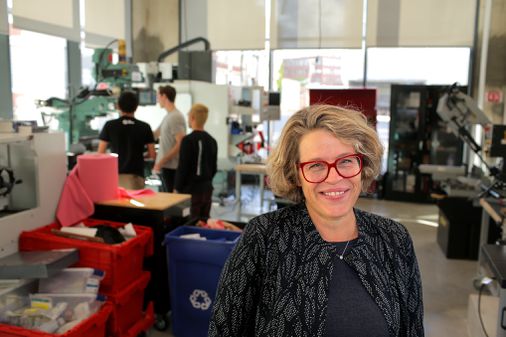This week’s big advance in fusion energy reminded the world that technology could play a major role in addressing climate change.
One of the key financiers in the field is The Engine, the venture capital firm spun out of MIT in 2016 to focus on “tough tech.” The Engine has backed a number of promising climate-tech startups, including Cambridge-based Commonwealth Fusion Systems, which aims to have a demonstration of its fusion reactor up and running in a few years.
On Thursday, The Engine released a progress report covering its first six years. So far, the firm has invested $672 million in 44 companies. That’s not a huge amount in the VC world, but The Engine’s imprimatur helped attract many other investors to climate tech. Engine-backed companies raised another $4.1 billion from others, according to the report.
“The real hope was we could find companies and technologies that if you put them together… we could prove these are businesses worth backing and industries worth creating,” Katie Rae, chief executive and managing partner at the Cambridge-based firm, said in an interview.
A few local startups backed by The Engine are already on their way to creating viable products, including Commonwealth and battery maker Form Energy. That means The Engine needs to help its companies raise more funding, like last year’s record-breaking $1.8 billion Commonwealth deal. Larger startups will rely more on debt, project financing, and government loan programs, Rae said. “There are lots of good trend lines, and now we need to increase our muscles and our strength,” she said.
Rae and her team continue to look for early-stage startups, as well.
Deals that The Engine participated in this year included $8 million raised by Axoft, a Harvard lab spinout working on a computer interface for the brain, $10 million for Foundation Alloy, which is trying to develop new metals, and $15.5 million for Sync Computing, working on revamping cloud computing to make it more efficient.
Perhaps the most notable stats in the new report relate to the diversity of founders. Three-quarters of startups backed by The Engine had a founder or chief executive from an underrepresented minority group, and 44 percent had a woman in one of those roles, according to the report. The figures stand out in the VC industry, where less than 2 percent of dollars go to founders who are women and people of color.
Rae credits the efforts of local universities for helping create a more diverse pool of founders in the region.
“From our point of view, it is unacceptable not to believe that people of very diverse backgrounds should be the next founders,” Rae said.
The next phase for The Engine will be helping its companies manufacture groundbreaking products on a large scale, Rae said. “We’re building a good head of steam and there’s a lot more to come,” she said.
Aaron Pressman can be reached at aaron.pressman@globe.com. Follow him on Twitter @ampressman.
Credit: Source link


Comments are closed.